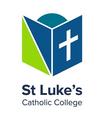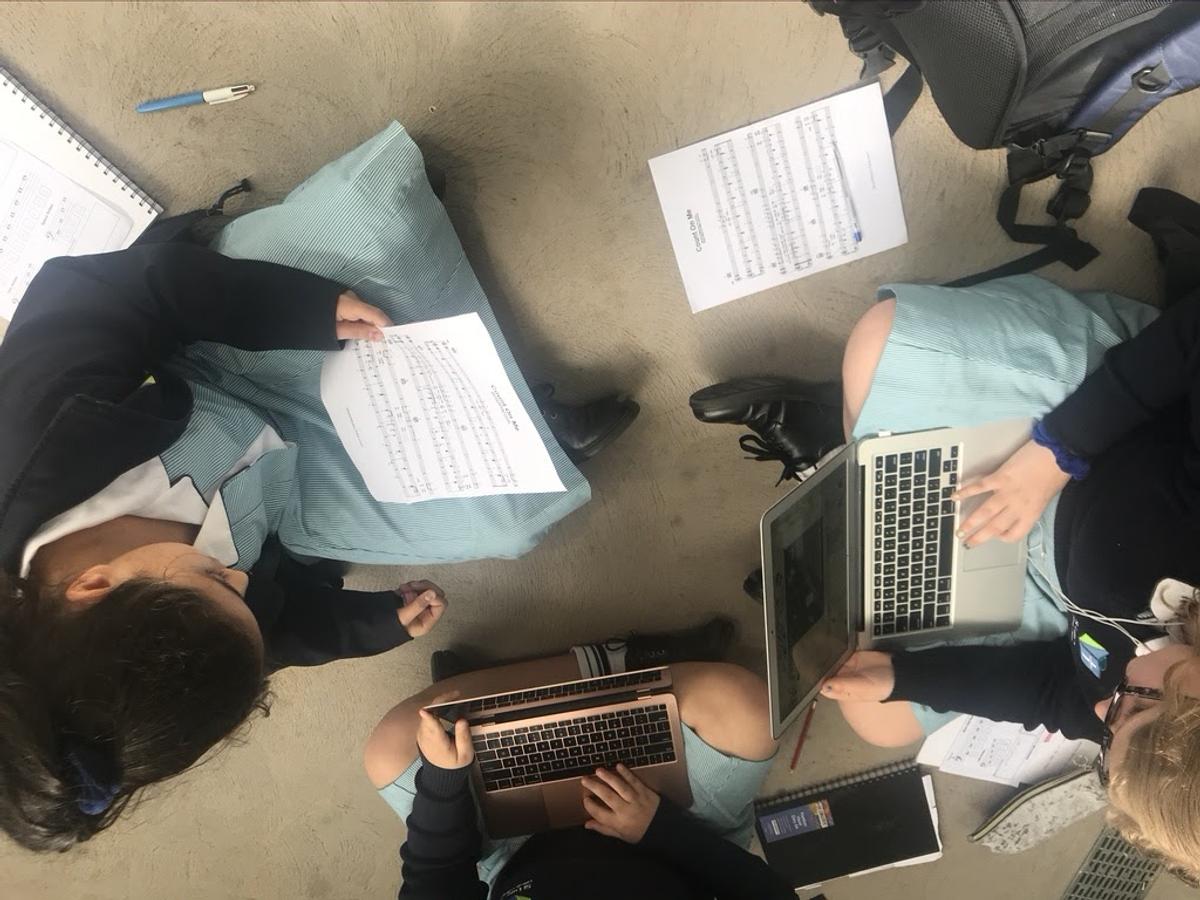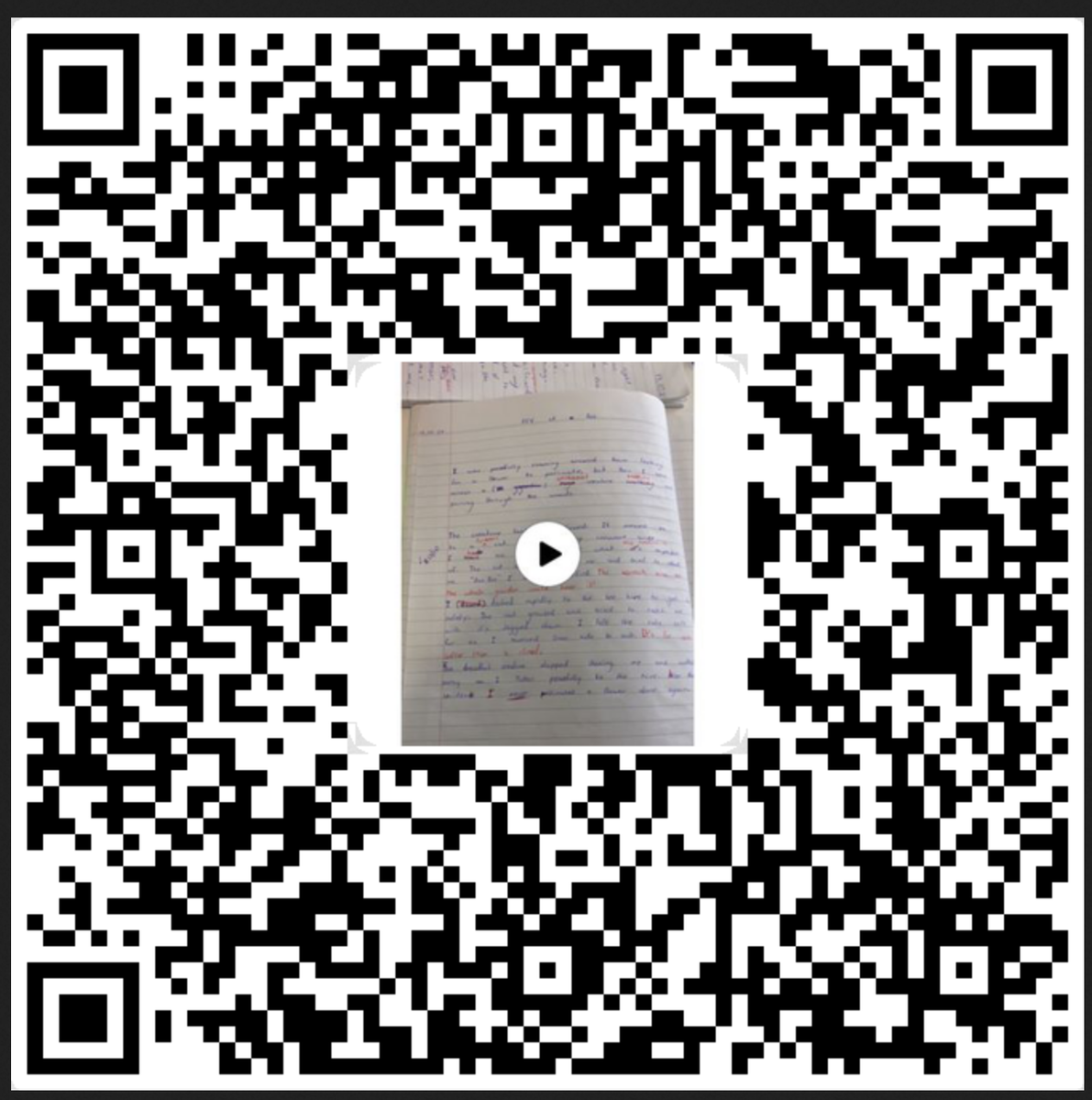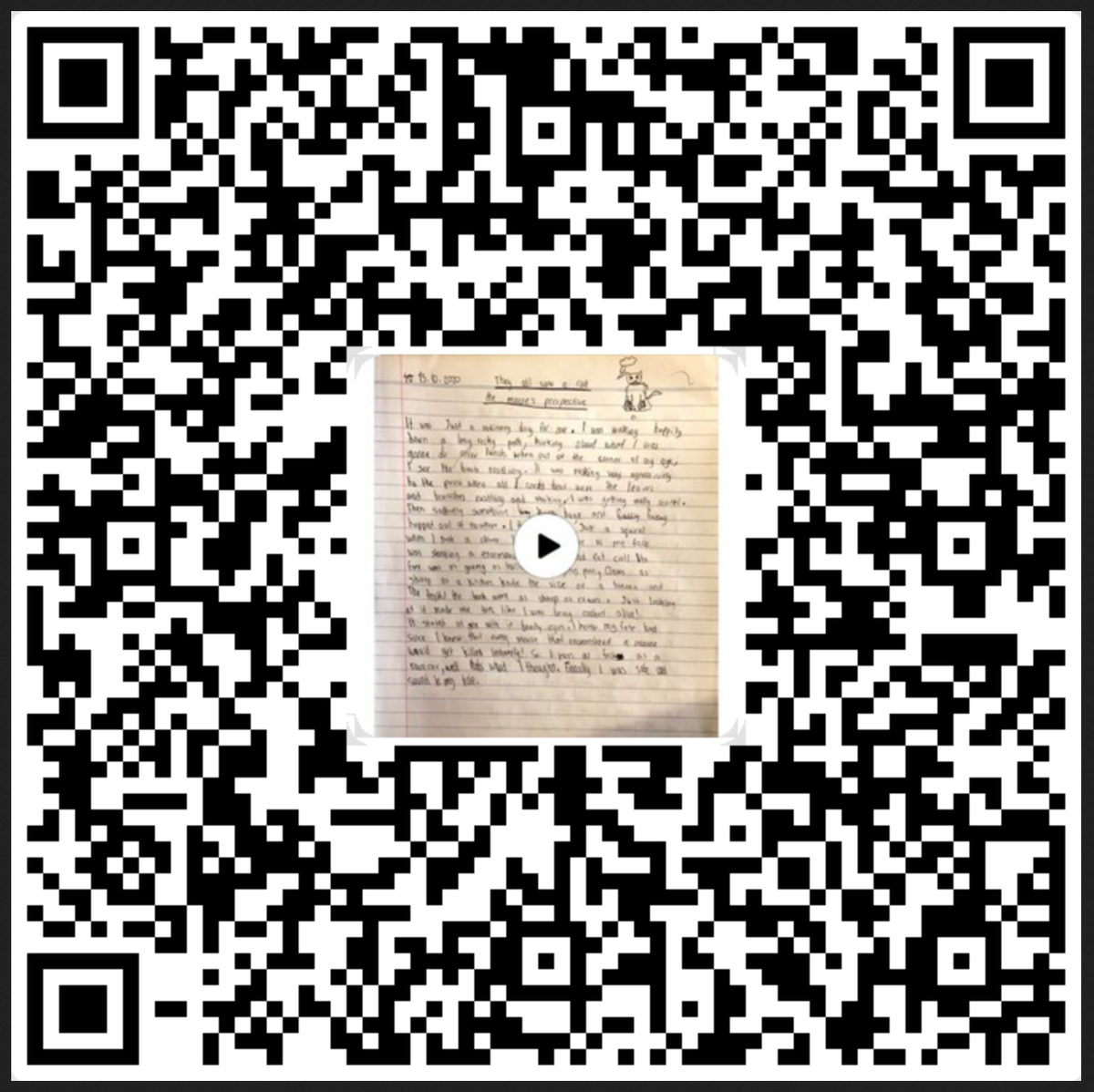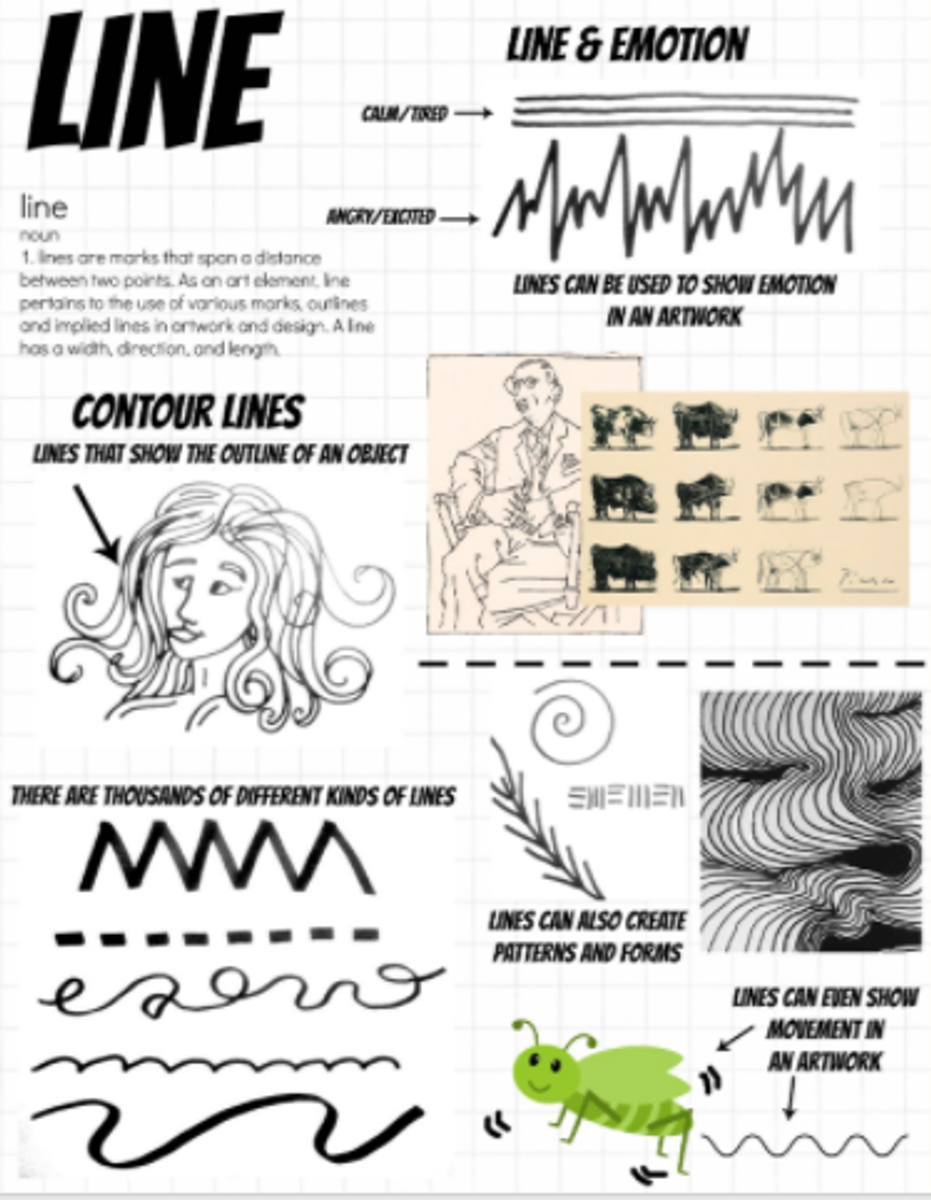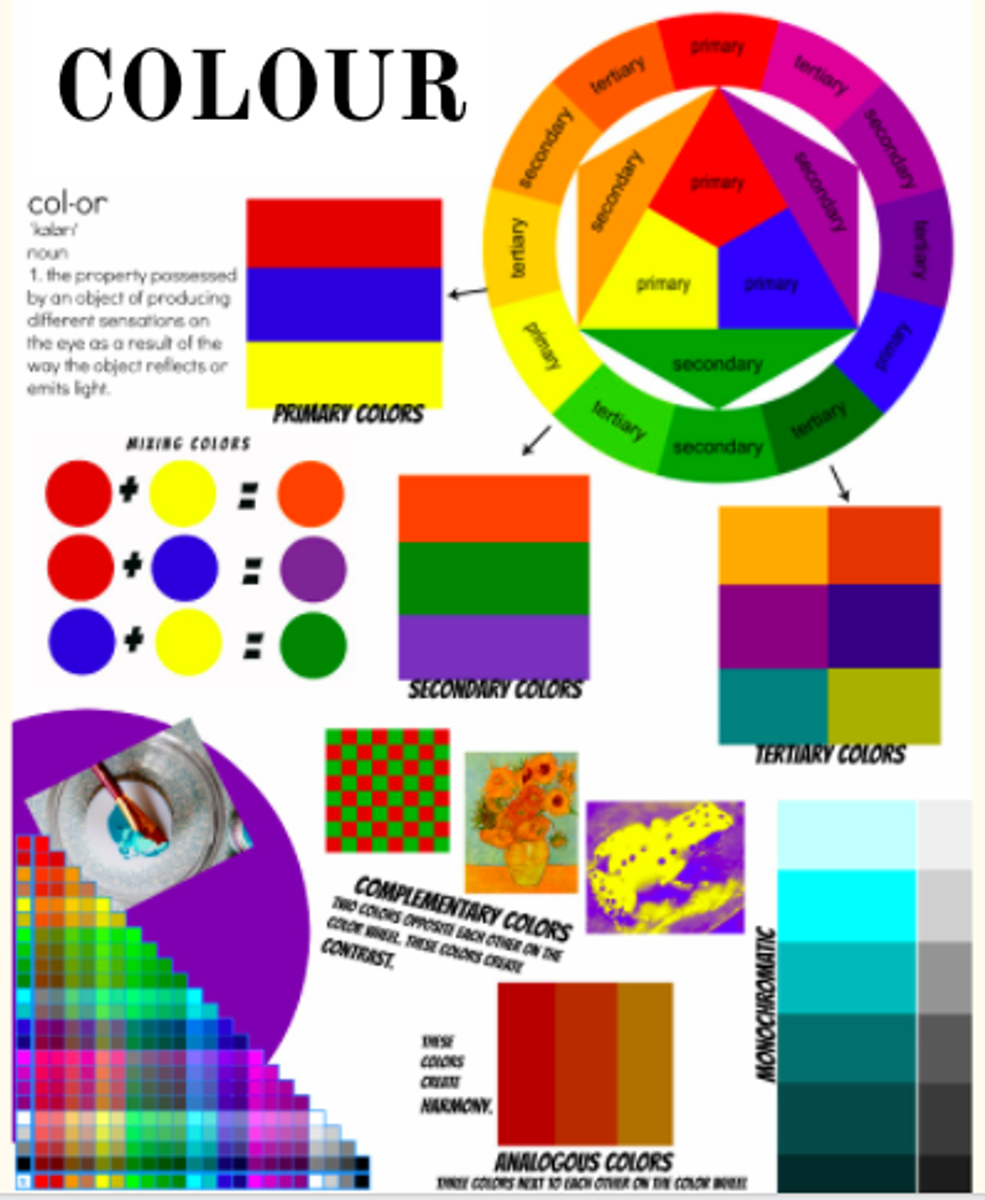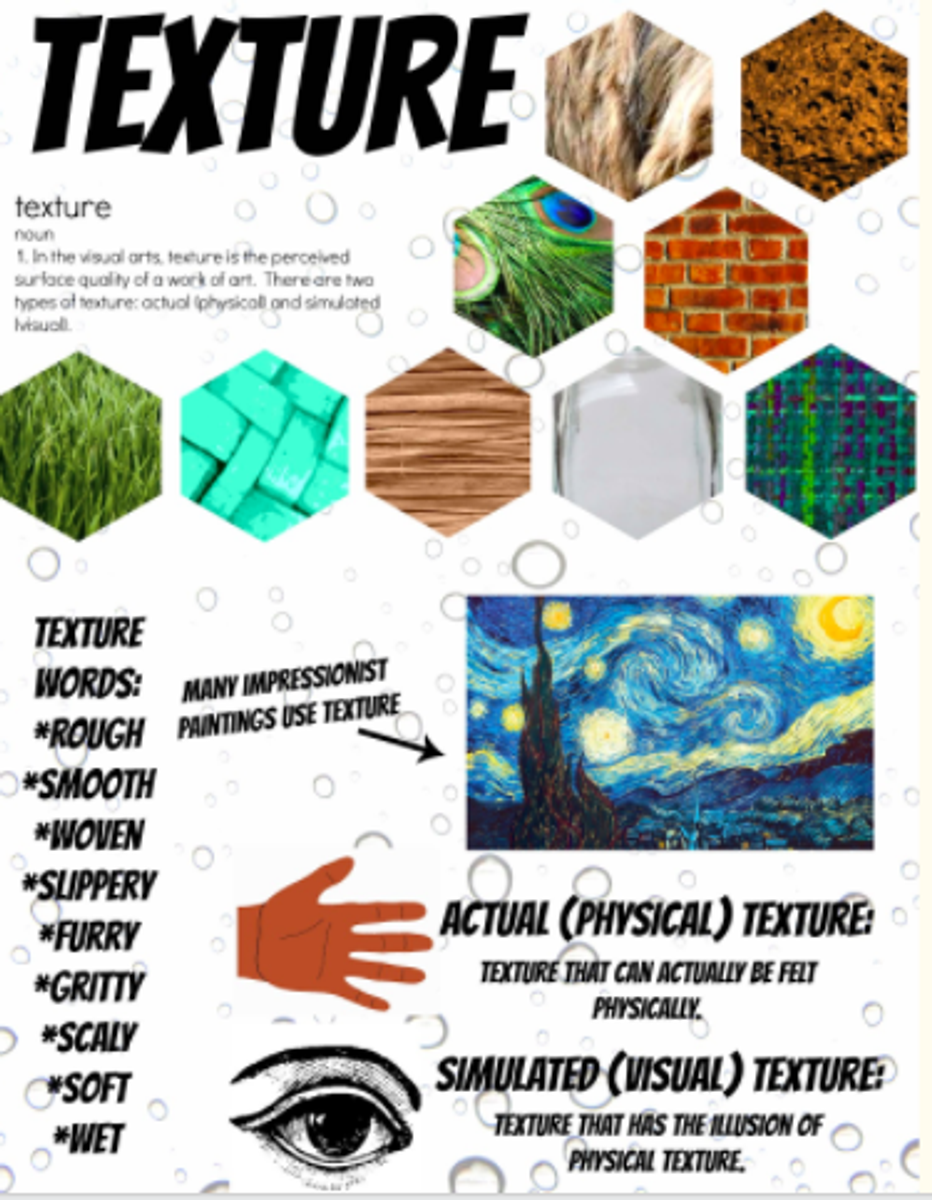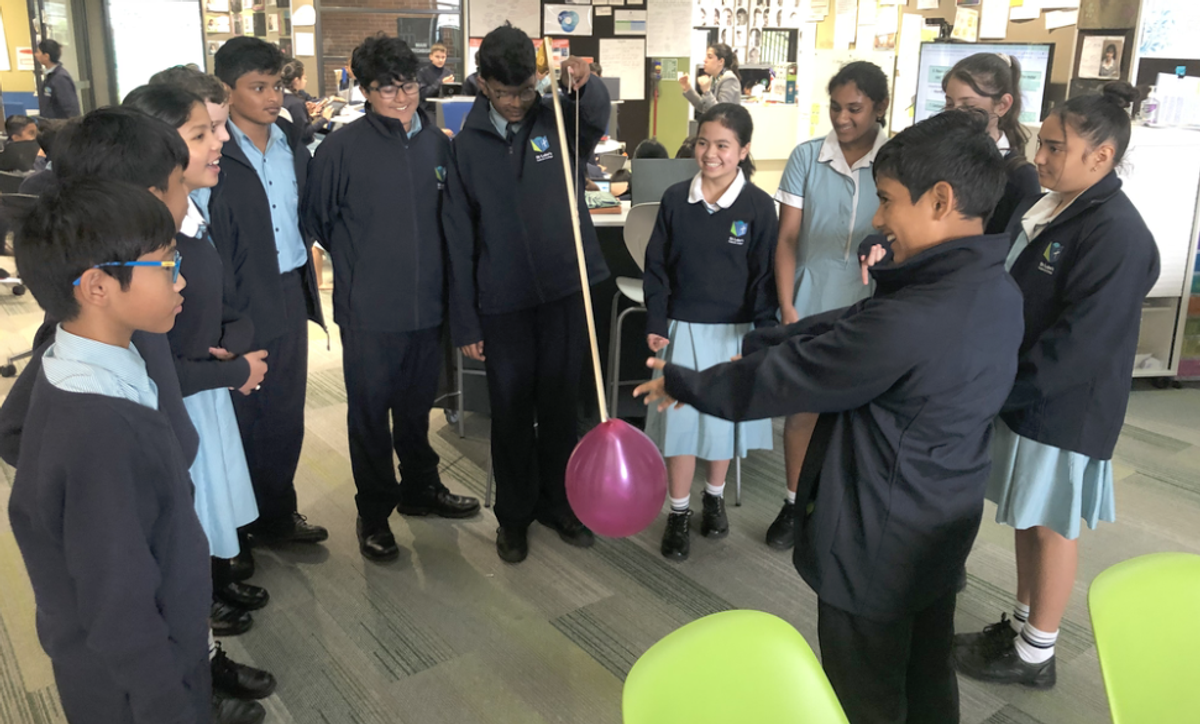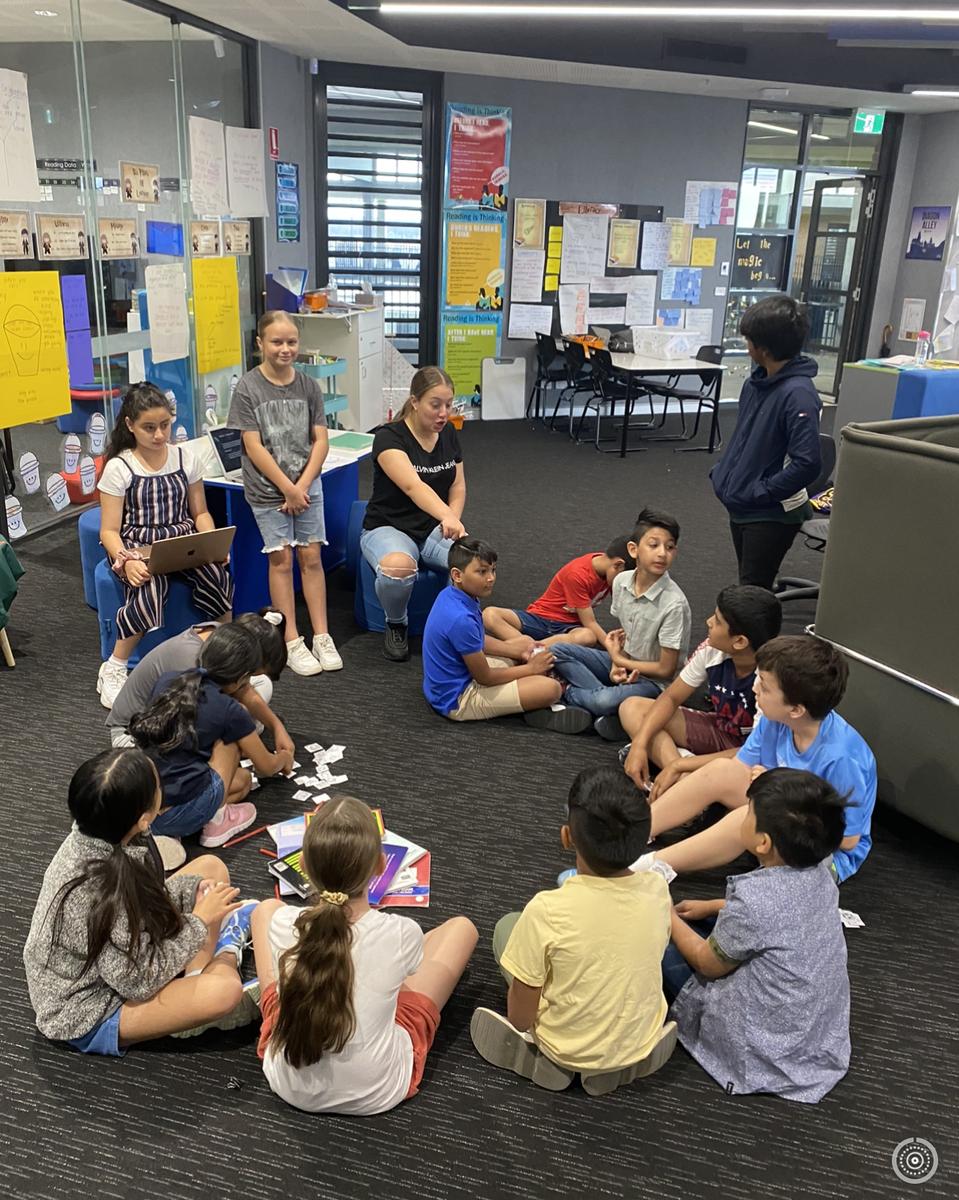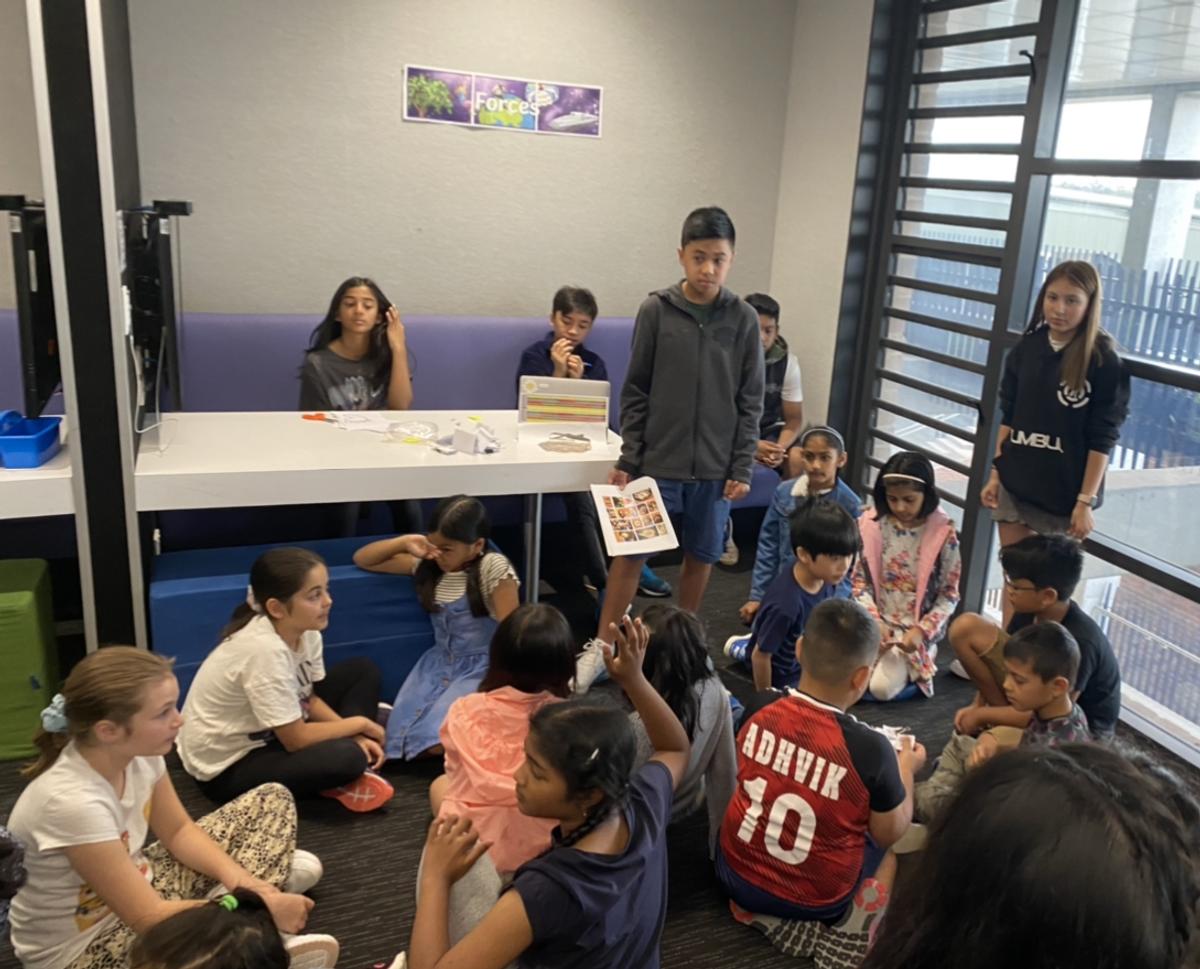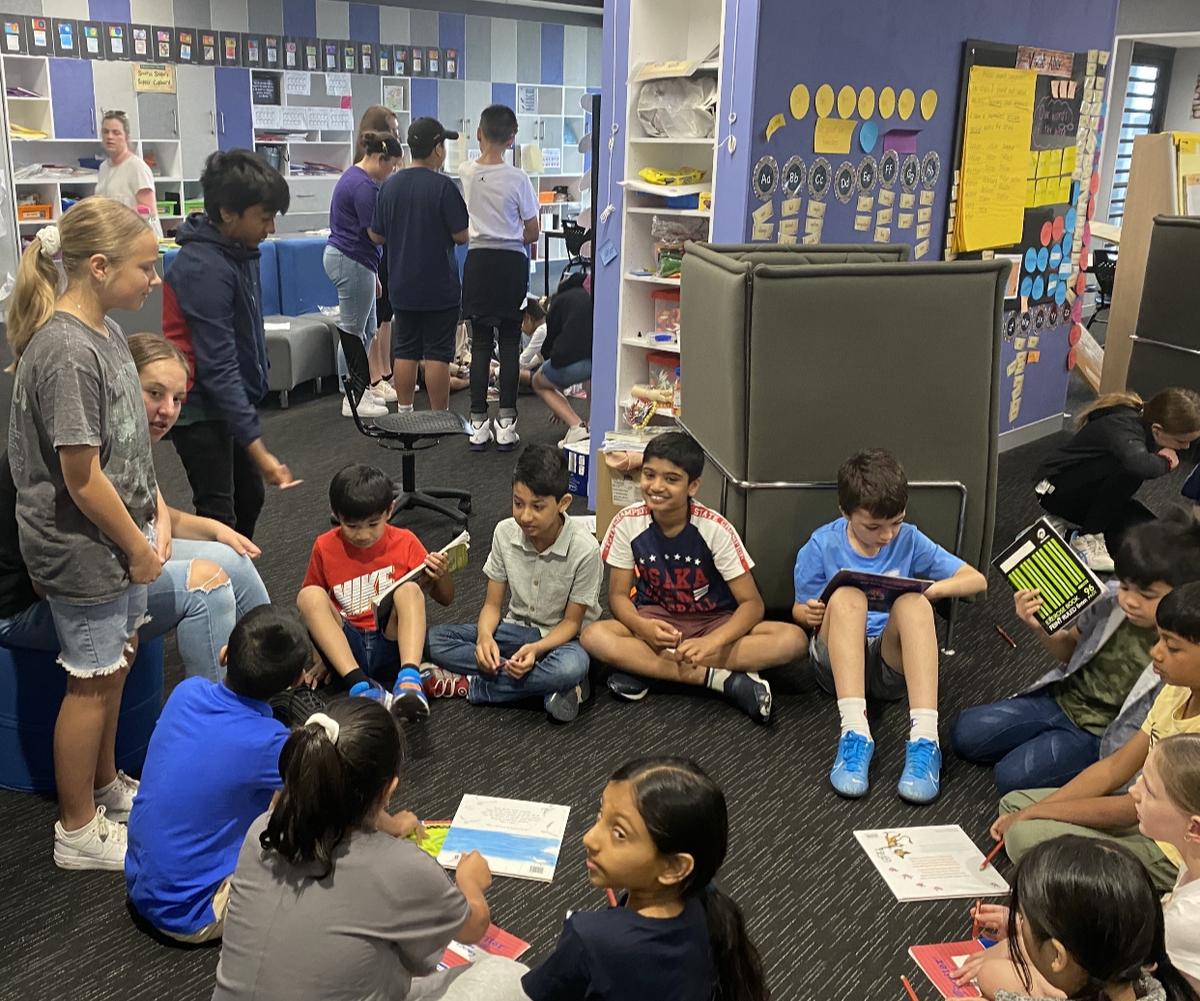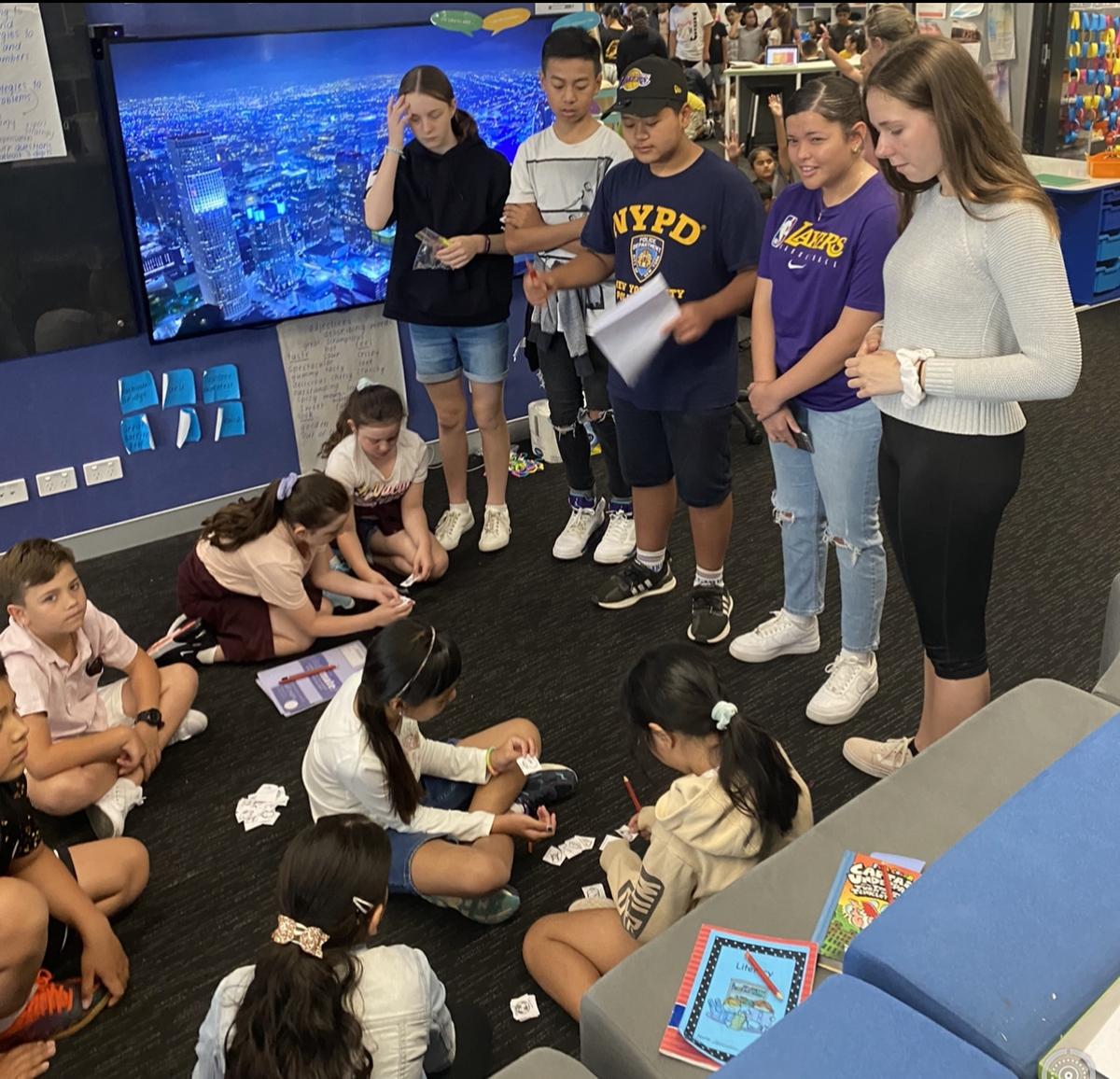School of Leadership
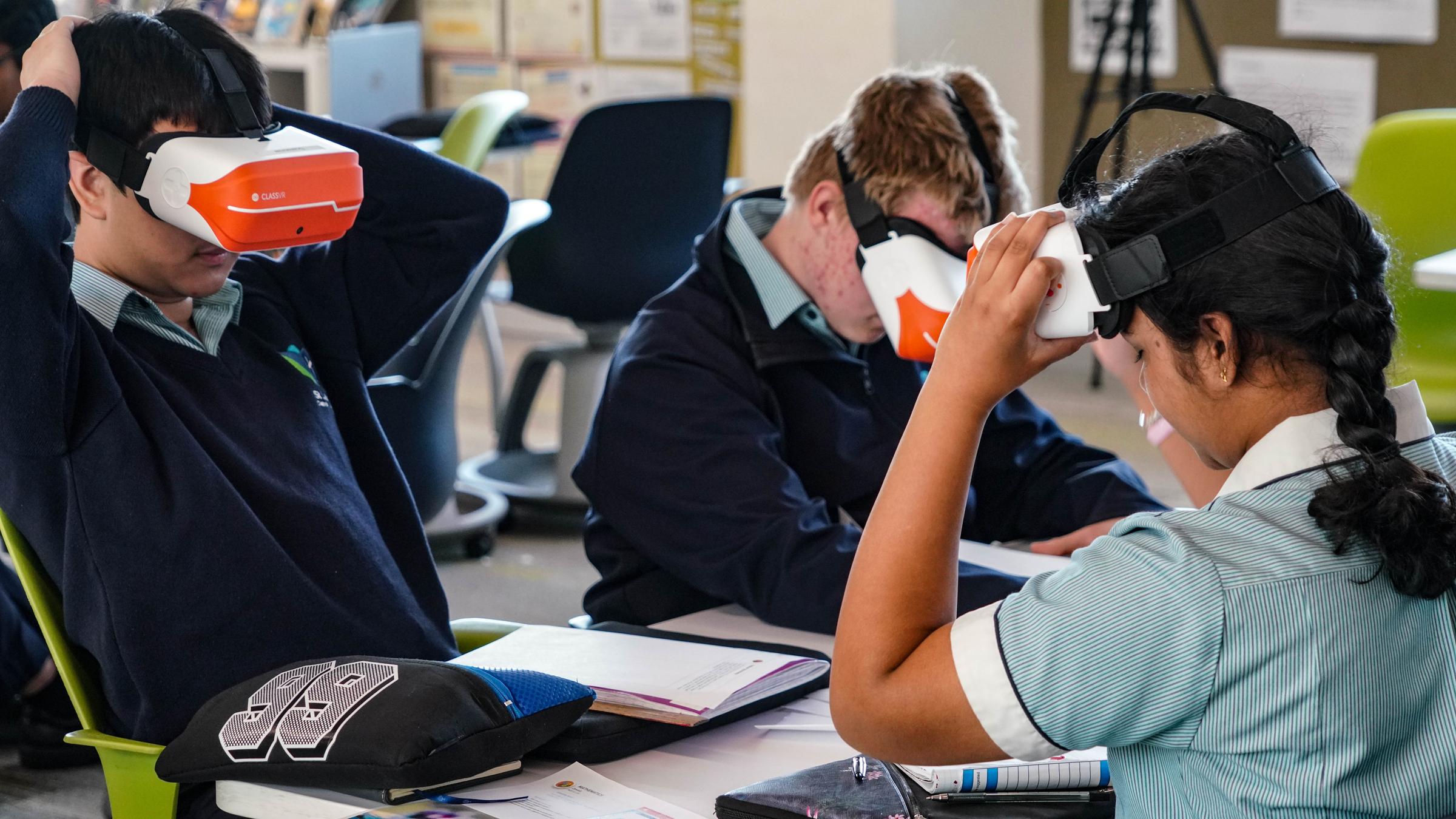
Stage 4 and 5 Timetable
For the past two terms, students in 7-9 have been trialling a new timetable that utilises a particular weekly flow. First, students engage in flipped learning from home in order to prepare themselves for their lessons. This pre-work is set on Canvas, our learning management system, so that students can access this prior to the lesson. This video will assist students in managing their learning for flipped classroom components of their home learning.
This flipped learning component is then followed by a teacher managed session, where teachers run workshops and experiences for students to engage in the content. In the final component of this flow, students work through a session of mastery based, independent learning. This segment of the day is student self-paced or self-directed. Our students have the option of either going to workshops with teachers or engaging in the work independently or in small teams. Students and parents have been given the opportunity this week to give feedback on this model, as part of a collaboration between Western Sydney University and St Luke’s.
Rohan and Malka, our Year 9 students share their insights on self-paced mastery based learning at St Luke’s:
What would a visitor to St Luke’s see when they walk into a learning space during
Mastery Based Learning (MBL)?
Rohan:
When a visitor enters St Luke’s during Mastery-Based learning, they would see students self-pacing their work and working through their tasks set from the morning sessions. Students are well focused and involved in the tasks they are set since those tasks allow them to further their knowledge for the upcoming lessons.
Malka:
Students spread around the open learning space completing tasks that were set in the 2-morning sessions. Students would be completing tasks that were set in the morning session in their groups or individually. They would work for a minimum of 30mins to an hour on work for each subject to help them to complete their work on time.
How do you use the Canvas calendar?
Rohan:
I use the canvas calendar to organise myself and keep up to date with the work that I have to complete. It significantly helps me to keep myself on track and organised and allows me to get information that is necessary for each lesson. The canvas calendar provides us with the plan for the day, tasks due and resources to complete the tasks.
Malka:
Using the canvas calendar is fairly simple. There are different sections on the canvas page, this includes the courses, the calendar and the dashboard. The course page helps you to locate the different subjects you have and the calendar helps you to get information on what subjects you have on that particular day as well as the tasks you need to complete in each lesson. The dashboard allows you to look at your marked assignments and has a to-do list on it which can help to remind you when your assignments are due and which ones are coming up.
What do you understand about the Teacher Managed Learning session?
Rohan:
The teacher managed learning session is where students are guided/directed by the teacher where the teachers explain to us the process of what we are doing and set us tasks for the day. Teacher managed learning extensively helps us get started on our tasks that we are set since it allows us to gather all the information we need for the tasks and successfully allows us to complete the activities to a high standard.
Malka:
The teacher managed learning session is when us students are given tasks by our teachers to complete in a certain amount of time. I believe that Teacher managed learning helps us to get a good understanding on the topic we are learning about on that particular day so that we can then complete more work in our master based learning time as we would have a better understanding of what we learnt from the teacher managed learning.
What is flipped learning? How does it prepare you for your lesson?
Rohan:
Flipped learning is learning that is dedicated to preparing us for the next lesson. It prepares us for the next lesson since the teachers set tasks that help us learn the information we need for the upcoming lesson. Furthermore, it prepares us for our lesson since we participate in class discussions at the start of the lesson on the things that we were set on, doing flipped learning allows us to productively participate in the discussion.
Malka:
Flipped learning is extra work we are given by our teachers to help us to prepare for our next lesson in that particular subject. Flipped learning helps us to prepare for our next lesson as we are also given instructional videos to help us to understand the concept which we are learning about in our next lesson. It also gives us more knowledge on a subject to give us a better understanding of a certain concept we were confused on in class.
How are instructional videos helpful?
Rohan:
The instructional videos help us effectively understand the information allowing us to learn visually and with voice instructions in the background. The instructional videos allow us to take notes on the information and use those notes in future learning that we will be taking part in.
Malka:
Instructional videos are definitely helpful as they have helped me to understand difficult concepts and take in large amounts of information as I was able to write notes in my books so that I have notes for my next lesson. Using instructional videos helps us to complete our work to a high standard as being able to understand a concept better or the steps to completing a piece of work will lead us to having a better understanding of the subject itself which will help us to complete our work to a high standard.
What are the Exit Tickets? How do they work?
Rohan:
Exit tickets are a way for students to submit their work that they have done during class time and what they were allocated. Exit tickets are set so that students don’t leave their work hanging and submit it before leaving class. Exit tickets also help with keeping students organised and up to date with their work.
Malka:
Exit tickets are set so that students don’t leave their work hanging for a long period of time. Exit tickets are a way to keep us students focused during that learning period as we know that we have to submit that piece of work in a limited amount of time. Exit tickets are a great way to help keep students organised and focused on their work.
How do you help your friends during self-paced learning?
Rohan:
I help my friends during self-paced learning sessions through providing them with feedback on their work and answering any questions that they may have. Additionally, I can also help them by sharing the workload and working together as a team in order to complete a task successfully and efficiently.
Malka:
I help my friends during self-paced learning by sitting with them and working on the same task with them. This usually happens when I am in a group for a group project. I also get to catch up with other members from a group task and divide the workload with them during that time. Self-paced learning time allows me to catch up with my homework and tasks to complete from other days.
Does this MBL model help students from a range of backgrounds? How? Why?
Rohan:
The MBL model significantly helps students from a range of various backgrounds since it allows people to self-pace and work at their own pace. Different students have different ways of working such as students who are organised, students who tend to get distracted a lot and students who need help with their work. The MBL model allows all students to complete their work to a high standard and reach for help from the teachers at any time.
Malka:
The MBL model definitely helps students from a range of backgrounds as students who are capable of doing the work themselves and on time have the time to complete their work to a high standard and the students who need help on different subjects can get help from teachers during that time and also go to workshops held by them. MBL also allows different students with different capabilities to have a choice on attending different workshops so they can grab the information they need to complete a task.
How can students manage their time efficiently within the MBL model?
Rohan:
Students can manage their time effectively within the MBL model by reducing distractions, asking for help from the teacher when needed and staying on task. Additionally, students can also manage their time by setting goals for themselves in each lesson and achieving what they have set for themselves.
Malka:
Students can manage their time efficiently within the MBL model by completing the work they started in the morning and by also being able to get feedback for their work. During this time, Students are able to also set different goals for themselves to achieve in the set amount of time.
How do teachers support students during mastery based learning?
Rohan:
The teachers significantly support students during mastery based learning by running workshops for students who need help with understanding a topic or concept. This is done by the teachers going through the work with the students and clearing all the doubts that they may have. Teachers are always available to students during master based and students can feel free to ask any questions that they may have.
Malka:
As I said, Teachers do a great job at holding workshops for students who need help on a topic or understanding a particular concept. Teachers give us students the support we need by always being available during mastery based learning and always being ready to give us feedback during the session. These workshops are really helpful to us students as it clears all of our doubts and enables us to receive effective feedback from our teachers and fellow classmates.
How and where do you receive feedback? How does that help you?
Rohan:
Students receive feedback via the dashboard page on canvas and also verbal feedback the teachers might give while checking in with the student. Once we have received feedback on canvas, we are able to see the rubric and what our grade is on the rubric. Furthermore, we also receive written feedback alongside with the rubric to fix any mistakes in the submission and improve what may have gone wrong. Feedback helps me unpack my mistakes and fix them to complete my work to a high standard.
Malka:
Us students usually get feedback on the Our canvas page where the teachers set us different tasks and assignments. We get notified when we get feedback and after we get the feedback we need, we can resubmit and edit our response and take in the feedback that we received from our teachers. We also get marked based on a rubric set by our teachers in order to help us to know what we need to include in our work beforehand so we do better on a task. Rubrics also do a great job at helping us understand what we did not include in our work and what we can do to improve it.
Stage 4 CAPA - Music
Students in Stage 4 Music this term are learning to read music and write the notation for various songs. By doing this they will be able to create their own piece of music to go over a one minute clip of a chosen movie scene in order to convey a message without the use of words. Below are some images of our current Year 7 students writing music notation.
Stage 3
English & Geography
How do we blow the lid off stereotypes?
This is the driving question stage 3 has been investigating for our integrated English, Geography, Art and PDH inquiry project this term. We started looking at what a stereotype is and how we see stereotypes all around us in the media, in our interactions with others, in Art and in stories.
We have been looking at how we can tell a story from a person’s perspective so at the end of our unit we can create a narrative exposing a cultural stereotype. This has given the students the opportunity to engage in some very creative writing using figurative language. Using a picture book as a provocation, we explored the perspective from another character and used figurative language to describe their experience of the story. Check out some of the extracts below!
Ansh Francis Laura Haeman
From our geography perspective, we have been investigating the culture of our neighbouring countries and comparing them to our own culture. The children have found it fascinating reflecting on our perceptions of certain cultures before researching and then seeing how different the reality is once we have had the opportunity to delve deeper into the aspects of their culture. Students have presented their research in graphs and charts.
Art
Students have been analysing and appreciating art works from different artists. They have been identifying ways artists create artworks based on the following four elements: colour, line, texture and value.
Students analysed the artworks to identify how the author has created meaning through the elements.
Science in Stage 3
The children have been developing their skills conducting and analysing the results of experiments that test the behaviour of matter.
We used an inflated balloon to prove that gas has matter, as the children were able to see that the air filled balloon had volume and mass. In conducting an experiment to create Oobleck, our students have also been learning that the particles in matter do not always behave as expected! This led to an awareness of the existence of non-Newtonian fluids.
An important part of our learning has been to understand the requirements of completing a scientific report, such as developing a testable question and forming a hypothesis.
Stage 4 RE - ‘Human Dignity’ Learning Cycle
On 16th October, as part of the St Luke’s Feast Day celebration, Stage 4 students organised a Food Drive to collect non-perishable food items and toiletries as donations to refugees and asylum seekers through Jesuit Refugee Services (JRS). They have also initiated a drive to collect bottle caps to support Envision Hands. Stage 4 students visited students from Stages 2, 3 and 5 to teach awareness lessons about refugees and asylum seekers. What a way to see the 3H Paradigm of the New Draft Religious Education Curriculum in action!
Student Reflection:
The idea chosen was for Stage 4 to teach other grades about refugees and lead them through a series of different activities to give them a further understanding of refugees, what they go through and choices they had to make. A lot of preparation and thought went into this project and we prepared for a few weeks beforehand to come up with detailed and fun ways of teaching. Through the classes that were conducted by our teachers, we were able to learn about human dignity and rights, equality, refugees and other catholic social teachings . We learnt about how we are all made in the image and likeness of God which is why each and everyone of us should be given the same chance to live life in a stable and safe condition. Students were also required to donate food items and toiletries to the Jesuit Refugee Service (JRS) or donate bottle caps to the foundation “Envision Hands”. Donation of lids can be made into the perspex box that is in the marketplace.
While in the preparation state of this project, I started to feel a sense of happiness knowing that we are soon going to be helping so many people in need. Just being aware that I will be carrying out the values and teaching that come from Jesus Himself, made me feel as if I have a purpose here at St Luke’s and furthermore in this world. I felt a sense of inclusivity because I was working amongst a team of other dedicated students who knew they wanted to fulfill the same purpose that I also wanted to fulfil. This whole project was meaningful to me and to others in Stage Four because I myself knew that I was going to be a part of helping someone in need. I realised that it wasn’t beneficial to me materialistically, but it was overwhelming emotionally, knowing that soon someone's life would be a tiny or a lot better by our small acts of kindness.
I found myself feeling worthy throughout the donation process, but also through the teaching of the different stages. On St Luke’s day, we taught different stages about refugees. While teaching these children and educating them on live events and issues within our world, we were demonstrating kindness. Just like our teachers taught us, we brought our new knowledge and shared it amongst the younger and older students of St Luke’s. We are spreading the word around to let people realize how blessed they are to live the life that they live. Unknowingly for some people, just by teaching about refugees and how we can help shows that we can serve a greater purpose in this world.
-St Luke’s Feast Day Activity Reflection by Carmella Queras & Althea Dela Cruz / Stage 4
Stage 4 - Technology
Year 7
In year 7 students are in the middle of their current unit called Keepsake. Students will design a pendant and packaging for another person in the class. Students are currently creating their pendant designs using one of three methods. These methods include using Adobe Illustrator to create a design to be laser cut., using TinkerCAD so the CNC Mill can laser cut a mould in wax or hand carving a design in wax. For all of these design methods, students finish with a pendant in sterling silver.
Year 8
In year 8 students are in the middle of their current unit called Make it or Break it. Students are creating a product to suit a need they have identified. They will be using the Makerspace machines and resources to do this. Students are working to time, resource and size restrictions to design and construct their product. In this picture Omar is sanding the base of his watch stand that he created a CAD design for that was cut in the CNC Mill. He has made columns to hold his watches using the 3D printers and will laser cut his name into the base.
I thank all those who contributed to this extensive recount of 'all things' School of Leadership.
Mrs Kelly Bauer
Assistant Principal and Head of Leadership, 5-8.
